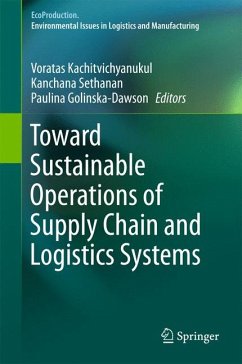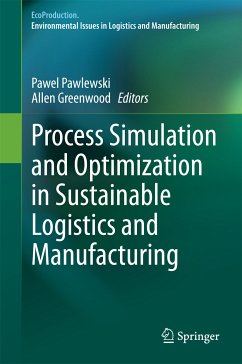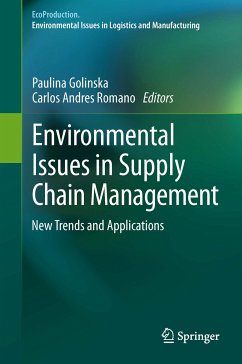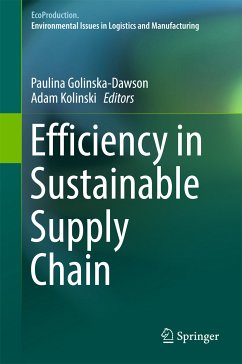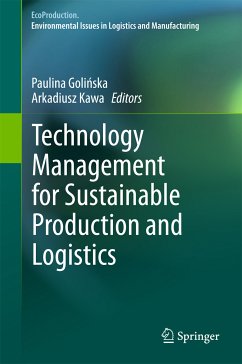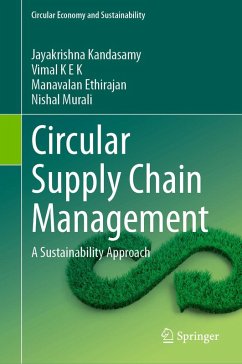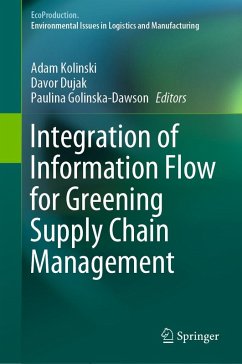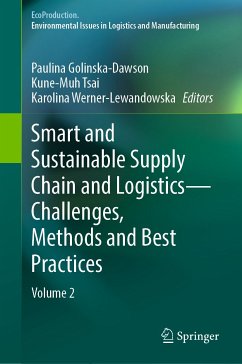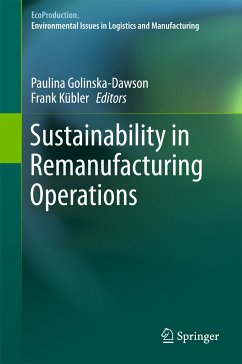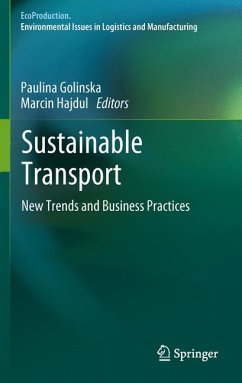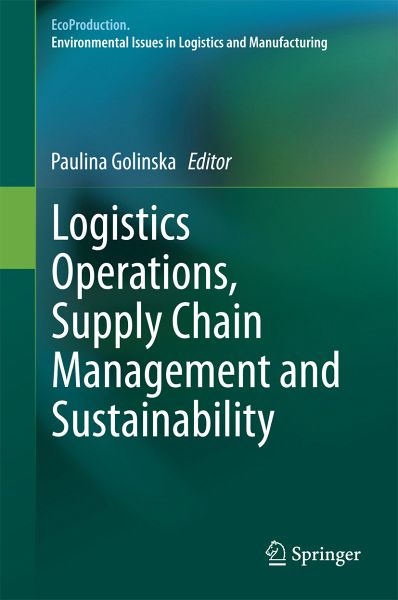
Logistics Operations, Supply Chain Management and Sustainability (eBook, PDF)
Versandkostenfrei!
Sofort per Download lieferbar
112,95 €
inkl. MwSt.
Weitere Ausgaben:

PAYBACK Punkte
56 °P sammeln!
The aim of this book is to present qualitative and qualitative aspects of logistics operations and supply chain management which help to implement the sustainable policy principles in the companies and public sector's institutions. Authors in individual chapters address the issues related to reverse network configuration, forward and reverse supply chain integration, CO2 reduction in transportation, improvement of the production operations and management of the recovery activities. Some best practices from different countries and industries are presented. This book will be valuable to both aca...
The aim of this book is to present qualitative and qualitative aspects of logistics operations and supply chain management which help to implement the sustainable policy principles in the companies and public sector's institutions. Authors in individual chapters address the issues related to reverse network configuration, forward and reverse supply chain integration, CO2 reduction in transportation, improvement of the production operations and management of the recovery activities. Some best practices from different countries and industries are presented. This book will be valuable to both academics and practitioners wishing to deepen their knowledge in the field of logistics operations and management with regard to sustainability issues.
Dieser Download kann aus rechtlichen Gründen nur mit Rechnungsadresse in A, B, BG, CY, CZ, D, DK, EW, E, FIN, F, GR, HR, H, IRL, I, LT, L, LR, M, NL, PL, P, R, S, SLO, SK ausgeliefert werden.




